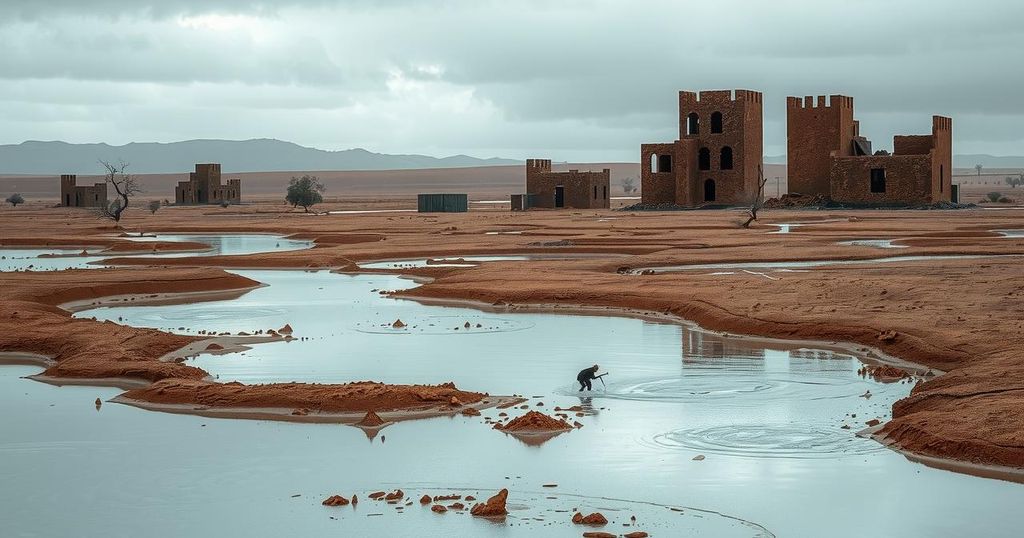Moroccan earthquake victims face worsening conditions during Ramadan due to heavy rain, which has inundated their makeshift camps. Promised aid has been delayed, leading to frustration as families continue to live in unsuitable shelters. Concerns over corruption and inadequate support have been raised, while the political climate reflects a growing disconnect between governmental actions and the actual needs of the affected communities.
During the holy month of Ramadan, the victims of the Morocco earthquake are suffering under heavy rains, as their makeshift camps have turned into muddy pools. The situation has deteriorated significantly since March 9, when intense rainfalls began impacting the already fragile infrastructure in the Atlas Mountains. Victims continue to live in tents designed for temporary use, which are now collapsing under adverse weather conditions.
Families like that of Halima, a mother of three who lost her house to the quake, are facing dire circumstances. She remarked, “The tents are no longer livable […] Water seeps inside, the mud rises up, and we have nothing to keep warm.” The delay in promised aid and reconstruction efforts has left many disillusioned, as they struggle to find basic comfort during what should be a time of reflection and community.
The Moroccan government announced substantial financial aid for those affected by the earthquake. However, local activists report that many families have received significantly less assistance than what was pledged, highlighting a gap between governmental assurances and the reality on the ground. Hussein Ait Mahdi, a local activist, noted that “most families, regardless of how much they lost, are only receiving the minimum amount.”
Challenges continue to plague the distribution of aid, with transportation costs hindering the delivery of crucial supplies to remote areas. Moreover, allegations of manipulation in beneficiary lists have tarnished the aid process, complicating an already precarious situation. Recently, allegations of corruption have led to a Ministry investigation, with some officials facing incarceration for their involvement in fraudulent activities.
As families in Talat N’Yaacoub face difficult conditions, the impact of the rains has been particularly harsh. Vulnerable groups, especially children and the elderly, are at heightened risk, owing to limited access to healthcare and unsafe living conditions. One woman expressed concern about safety, stating, “We’ve seen tents turn into death traps. We would rather endure the cold than take that risk.”
Despite the hardship, the delay in reconstruction has incited political tension. Opposition members in Parliament have criticized government priorities, focusing instead on infrastructural projects for the upcoming World Cup. Fatima Al-Tamani, an MP, posed the poignant question of how families continue to live in tents nearly two years after the earthquake while “world-class stadiums” are being planned elsewhere. The juxtaposition of thriving urban developments against the backdrop of suffering communities has ignited fervent debate across the country.
In conclusion, the plight of earthquake victims in Morocco during Ramadan highlights the severe humanitarian crisis stemming from delays in aid and reconstruction efforts. With families enduring harsh weather conditions and inadequate living facilities, the government’s inability to meet its promises persists as a critical issue. The contrast between governmental priorities and the needs of affected communities raises pressing questions about accountability, prompting ongoing discussions regarding the resolutions necessary for these vulnerable populations.
Original Source: www.newarab.com




